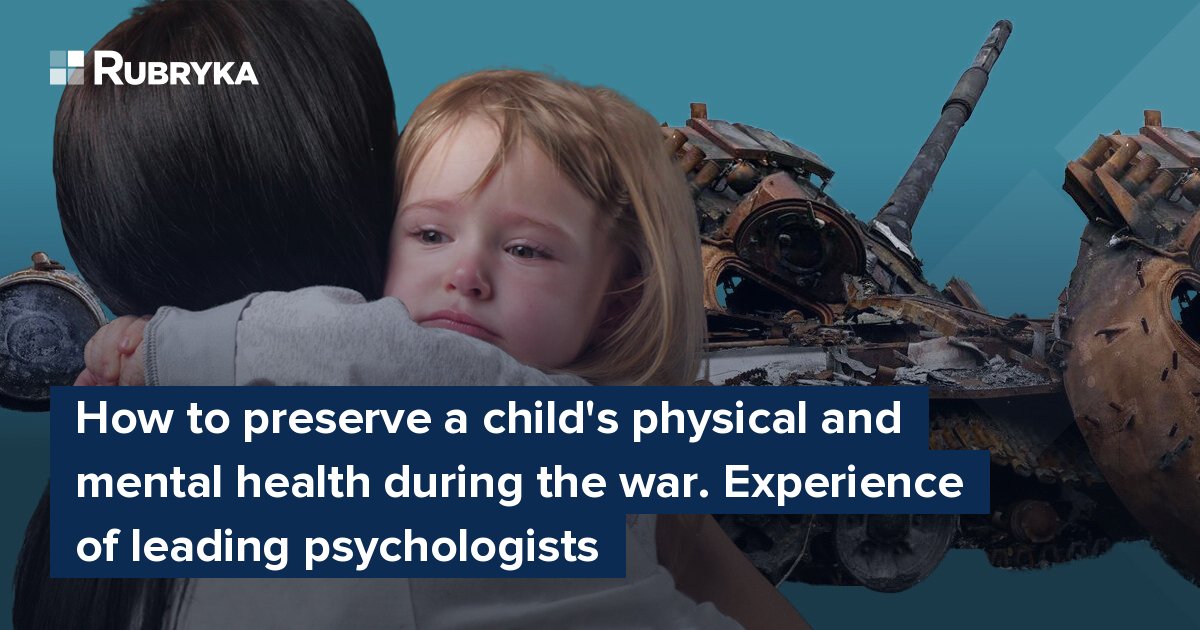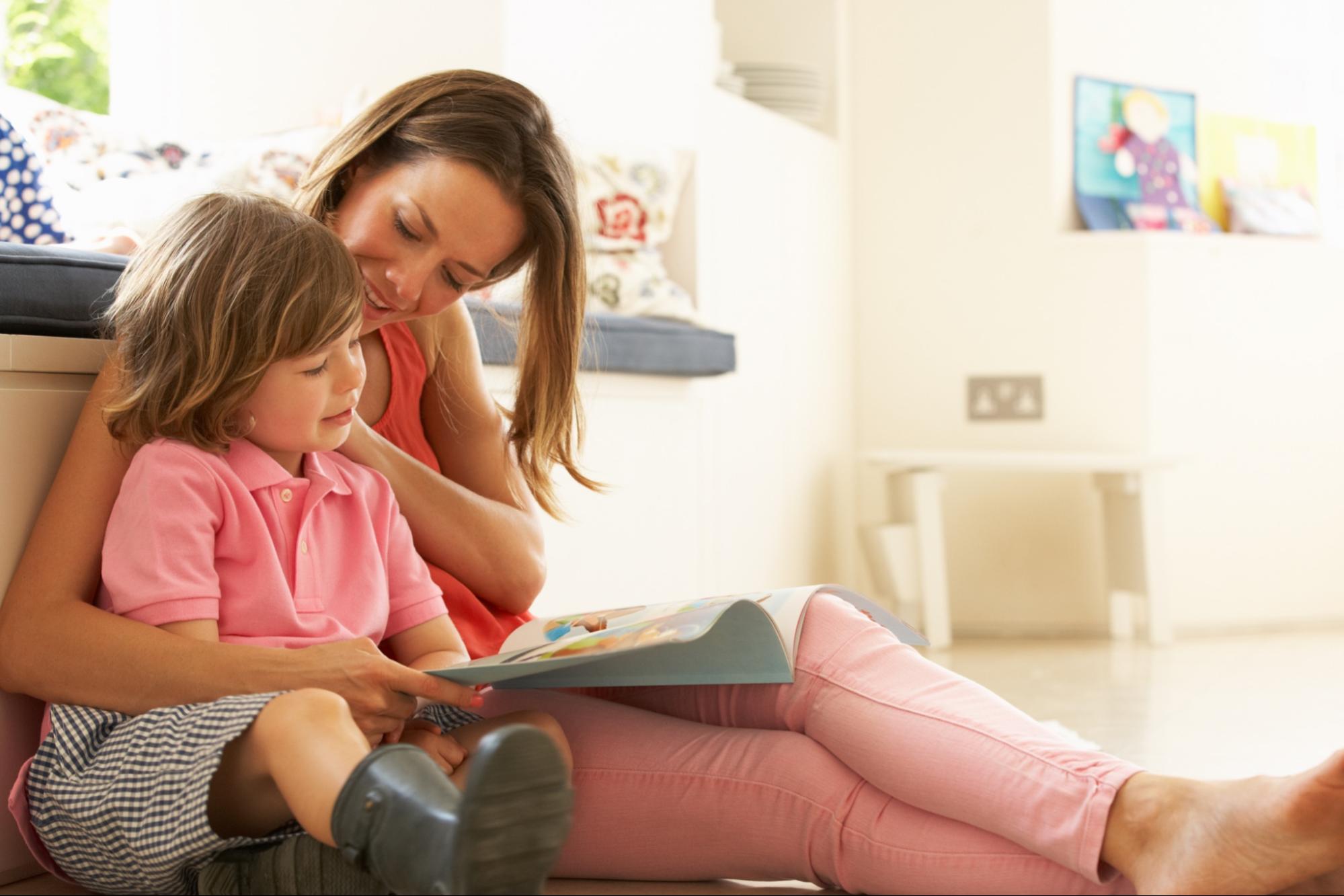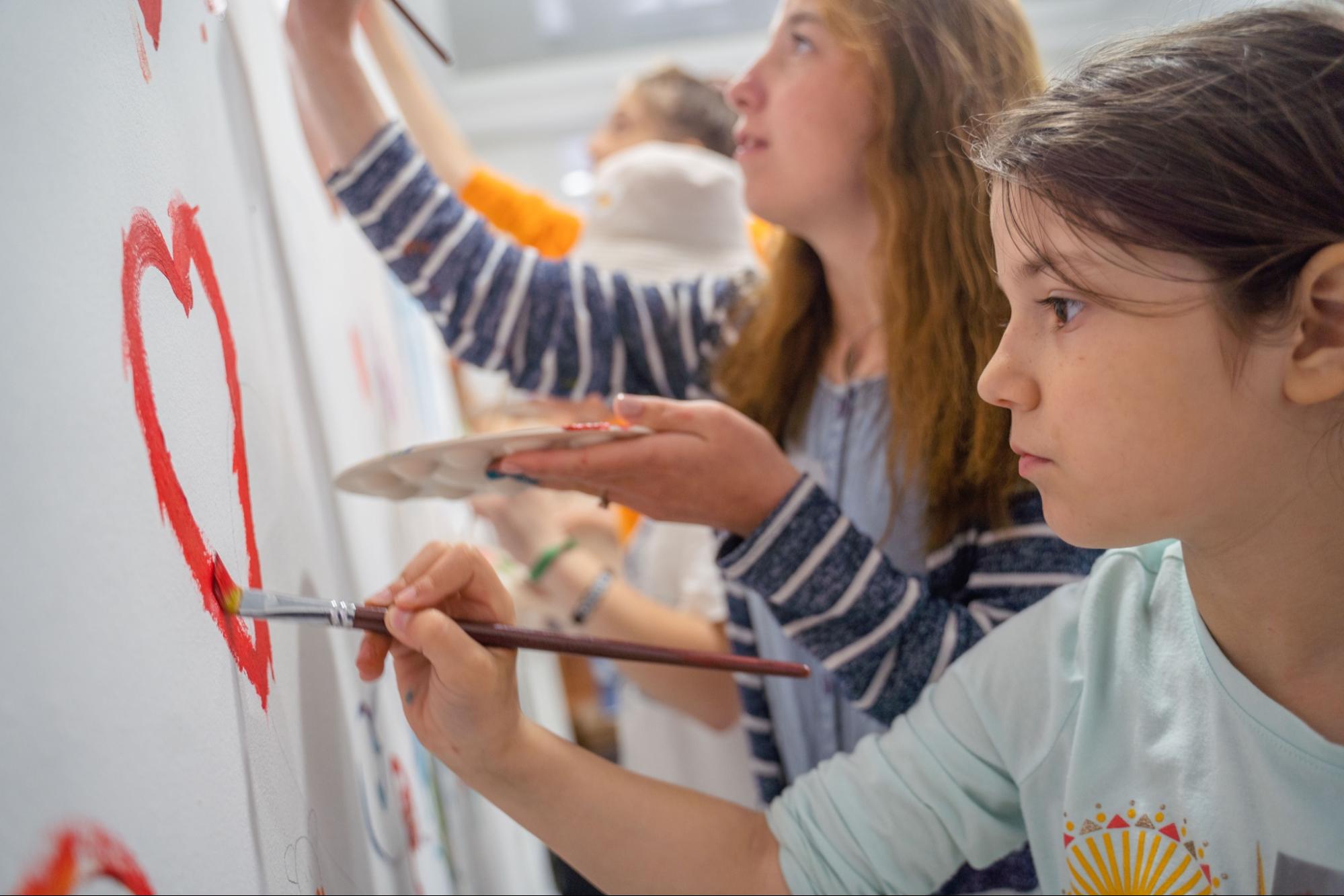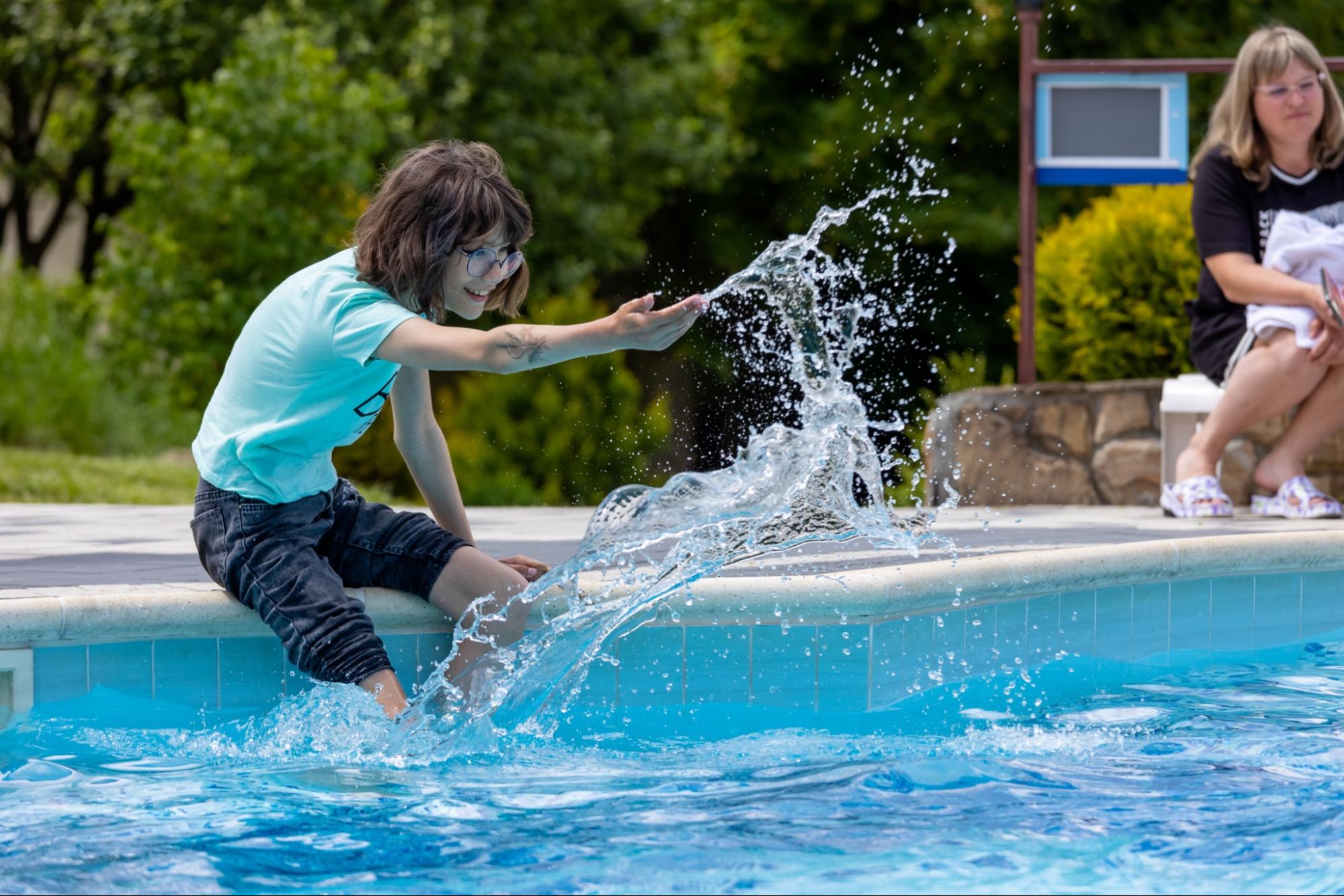
What is the problem?
Probably, every Ukrainian mother today thinks about how everything that her child sees, hears and experiences during this war will affect his/her future life. On the one hand, stress can really be destructive. A recent publication in the European Child and Adolescent Psychiatry discusses the serious impact of war on children: increased risk of developing PTSD (post-traumatic stress disorder), depression, anxiety, and wide-ranging health consequences.
On the other hand, psychologists advise not to despair because of a "stolen" childhood. Parental love and awareness of how to act can create a favorable atmosphere that will be stronger than all the horrors of war. Nataliya Masyak, a child psychiatrist and psychotherapist at the West Ukrainian Specialized Children's Medical Center, cooperates with the Voices of Children Charitable Foundation and has extensive experience working with children of war. She notes: "From our experience and based on the results of global research (Fernando and Ferrari 2013, Jones 2013), I can surely say that not all children with war experience will have signs of significant stress or PTSD. Approximately 7 out of 10 children cope with stress on their own. Children's resistance is often much higher than it might seem. Therefore, do not rush to conclusions, saying that the child was "broken" by the war. A number of factors affect a child's stress resistance, and therefore physical and mental health. Some of them are external: the intensity and duration of the traumatic event, the ability to restore one's resources (sleep, food, rest, games), the psychosocial environment, the adults' ability to support their child, etc. There are also internal factors: characteristics of the child's character, formed psychological strategies for combating stress, the state of mental health before the traumatic situation, and others. Parents cannot influence some of these factors, but many things are within our power."
What is the solution?
Transformation of feelings
"We need to win not only the war, but also the peace after it's over, that's why it's so important to take care of the mental health of our children now," Mrs. Masyak continues. Repressed, "canned" experiences can lead to bodily manifestations. Therefore, in order to preserve health, it is necessary to help the child to live through a painful experience, to let all fears, anger, sadness and resentment go out. But it is important to do it in a way that is safe for the child and his/her environment. There are now many opportunities to get free professional support. In particular, the Voices of Children Charitable Foundation cooperates with more than 30 psychologists, who provide psychosocial assistance to children of war individually and in a group format (art therapy, fairy-tale therapy, CPT program "Children and War") in 6 locations. Online help is also available.
Sessions with a psychologist comprise an important tool for healing a child's psycho-emotional injuries. An equally valuable healing resource is having significant adults nearby, particularly parents who are coping with their own experiences and can support the child.
Nataliya Masyak explains how traumatic experiences affect children of different ages and provides specific support tools.
Younger children, due to their small vocabulary and lack of life experience, often cannot analyze and express their feelings. Therefore, most often, children manifests stress at physical and behavioral levels. These can be a sudden change in appetite (refusal of food or an excessive craving for it), sleep disturbances (the child has difficulty falling asleep, sometimes there is nocturnal urinary incontinence), attacks of heavy breathing or coughing, rashes on the skin, etc. Some babies complain of pain in the body (most often the tummy or head), while medical examinations do not reveal any abnormalities. Frequent emotional manifestations of stress in children are: crying, strong attachment to parents due to anxiety, sharp mood swings and irritability, sometimes physical aggression or auto-aggression. In the process of playing, we will observe that the child reproduces the traumatic event again and again. Here are the steps that will come in handy.
- Restoring a sense of security is task number 1. If possible, evacuate from the active combat area and tell the child what means of safety you have – where you will go in case of an emergency, what toys and things the child can take to the bomb shelter, which actions will be done immediately after security is restored (going to the playground or playing at home).
- To better explain what is happening, use a fairy tale that will help you look at the situation from the outside and transform anxious thoughts. Make up a fairy tale for the child or together with him/her. You can involve brave protective warriors in the story who would deftly defeat the forces of evil. It is also useful to draw (or depict with other art instruments) the victory of good over evil and to give the drawing to the defenders, so even the smallest child will feel his involvement and ability to act.
- Create a safety corner together: a tent of pillows and blankets. The child can play or hide in this "hut" in moments of strong emotions.
- Physical contact is especially important now, because fear and anxiety are always accompanied by manifestations in the body (rapid heartbeat, intermittent breathing, muscle tension and motor excitement). Such a child needs a lot of hugs, active common games, wrapping in a blanket.
- Breathing exercises are very useful in overcoming all manifestations of stress, and if a child has shortness of breath (panic attacks), such exercises are simply irreplaceable! Try the "Breathing with a favorite toy on your tummy" technique. Put a small toy on the baby's tummy and ask him/her to inhale and exhale deeply so that the toy slowly sways as if on waves.
- "Hard as rock and soft as water." The child says: "I am as hard as a stone" – and strains the muscles of his arms, legs, face with all his might – and you count to five. Then you say: "Become as soft as water" – and the child suddenly relaxes, relieves tension.
Teenager, your voice is important!
"Recently, I was addressed by the parents of a 13-year-old girl: their child stopped sleeping and eating normally, lost weight, constantly and very emotionally spoke aloud news about the war," Nataliya Masyak recalls. – "It turned out that the girl spent the last weeks at her grandmother's house, where the news channel worked non-stop. Together with the parents, we developed a strategy: we returned the girl home, ensured informational hygiene (restricted access to independent viewing of the news, instead the parents told what was happening) and resumption of daily routines. I also gave parents recommendations for support. The girl returned to normal behavior pretty quickly."
The psychologist says that teenagers usually manifest stress itself on 4 levels: thoughts, emotions, behavior, and body. A teenager may repeatedly discuss a traumatic situation or, on the contrary, completely avoid any mention of it. Memory and concentration often deteriorate, night terrors appear. The child may lose interest in what previously interested him, withdraw from friends and relatives. The emotions of stress are irritation, anger, impatience, general restlessness, depression, and sadness. There may also be manifestations of aggression/autoaggression. Sometimes there are disturbances in appetite, bouts of discomfort in the body (rapid heartbeat, irregular breathing) and numbness.
Teenagers are often embarrassed to share their feelings or do not want to upset their parents, so they deny that they have feelings, instead feigning emphatic indifference or bravery.
"It is important to start the conversation delicately, without pressure. Try to start yourself: tell frankly what worries and upsets you, — advises Nataliya Masyak. — Your example will create a space of trust between you and your child, and can help your son or daughter dare to share their own experiences. Body techniques for working with muscles and breathing will be effective for both teenagers and adults.
It is important for teenagers to feel their own involvement, so offer them appropriate volunteer activities (weaving nets, spreading information). Encourage education, language learning to inform the world about the events of the war. In this war, everyone has their own role, and the task of a teenager is to learn and develop in order to be able to rebuild Ukraine and present it on the international stage."
The saving power of rituals
The trauma of war disrupts a basic sense of security. In order for the child could survive physically and mentally, it is important to restore this feeling, to give the child back control over at least some areas of his/her life. Physical safety is the first step to regaining psychological comfort. Methods of psychological support will also be useful.
Lauren Potthoff is a child psychologist at Ann and Robert H. Lurie Hospital in Chicago (Illinois, USA), and has received special training in the treatment of children and adolescents who have problems with physical and mental health at the same time. Dr. Potthoff advises how to regain your sense of security as soon as possible.
- Build and maintain a daily routine. Everyday routines – studying, socializing with peers, exercising, etc. – make life reliable and predictable. Of course, not all usual routines can really be preserved in an evacuation. But some elements of peaceful life can be restored. For example, these can be common breakfasts / dinners, stable sleep patterns, etc.
- Give your child a sense of control. In a state of crisis, children often lose their sense of control and suffer greatly as a result. Allow the child to make certain decisions applying to his/her age: evening entertainment, lunch menu or what clothes to wear to school the next day.
- Create your own rituals and traditions. Rituals are specific actions that we repeat throughout our lives. Rituals are like routines in that they help create a predictable atmosphere. But if the routine can be compared to an ordinary meal, then the ritual is a psychological "dessert". It is something that unites family members and gives a sense of "we are a team". A ritual can be singing "your" song, words of gratitude or blessing at the beginning of a meal, something special that you whisper in your child's ear when he/she wakes up and falls asleep.
How to help a child with special needs?
Advice for parents of children with ASD
The experience of war is extremely stressful for any child, and it is many times more difficult for children with special needs and their parents. Children with ASD (autism spectrum disorders) suffer a lot from the loss of their usual routine and change of their usual surroundings. The reaction to such stress can be the loss of previously acquired skills (speech, self-care) and deterioration of behavior. Stopping sessions with specialized professionals (behavioral therapist, speech therapist) also has a negative effect, because it worsens the child's development process. In Ukraine, there are no accurate statistics on children with ASD, and according to the Center for Disease Control and Prevention in the USA (CDC), today this disorder is observed in one child out of 44. If we transfer these figures to Ukrainian realities, it becomes clear how important it is for children with special needs to receive specialized assistance.
Natalia Masyak gives an example from her own practice: "I remember an 8-year-old boy with autism from Mariupol, who spent 14 days in the basement among a large number of people and pets, suffering from loud explosions and a general disturbing atmosphere. Due to stress, the boy completely stopped talking, increased self-aggression, disturbed sleep and appetite. One can only imagine what the parents felt, who worked non-stop for the past 6 years to build these skills in their son. It is because of such cases (and they are not isolated!) that the Voices of Children Foundation launched a special program to help children with ASD. The boy went through a rehabilitation course, and within a few weeks he started using separate words, his behavior, sleep and appetite improved."
For children with ASD, routines and established day order are critical. Resumption of development and correction sessions will significantly improve the condition of the baby. Nowadays, the daily challenges of war or evacuation require non-standard solutions from parents.
Natalia Masyak advises: "It is important for children with autism to follow a clear sequence of actions. For example, interrupting an unfinished task can cause a lot of stress for an autistic person. What to do if the air raid alarm sounds, and the kid is focused on his business? Talk to your son or daughter in advance: "When I say to go to the bomb shelter, you take your backpack, which contains your favorite toy and cookies, and come with me. You will be rewarded for this later."
Also, children with ASD are very sensitive to noise, smells, new people and spaces. During evacuation and in a refugee camp (or if you live with a large group of people in the same room) all these factors can become very stressful for a child. The task of parents is to distract the child with familiar and acceptable sensory stimuli. For example, if the room is noisy, offer the child headphones with white noise or quietly sing his/her favorite song. You can also offer to nibble on hard fruits or carrots – this will divert the child's attention. It is also important to relieve body tension regularly. Jump with the child, give him/her a massage, rub his/her hands."
Newsletter
Digest of the most interesting news: just about the main thing











